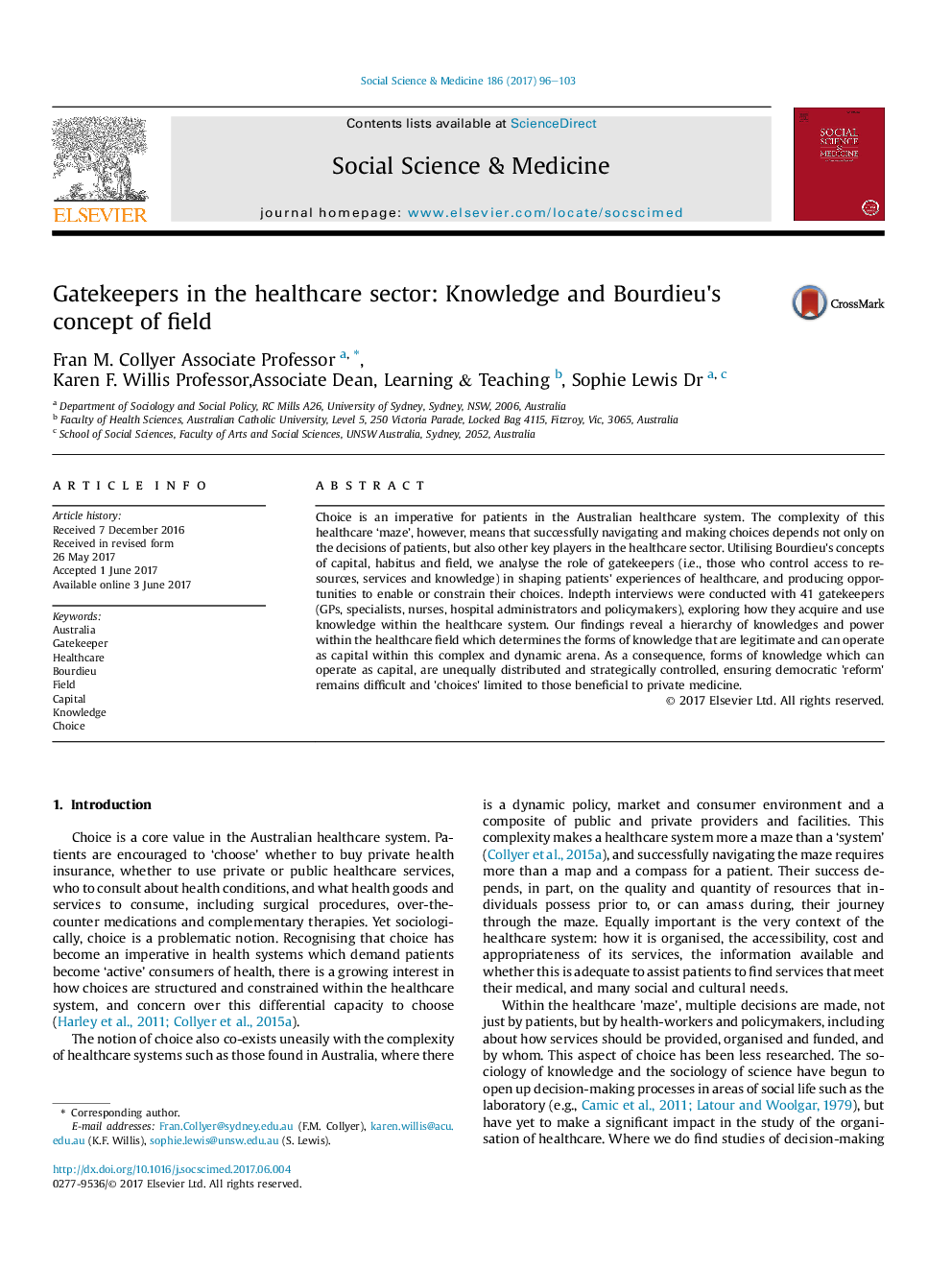| Article ID | Journal | Published Year | Pages | File Type |
|---|---|---|---|---|
| 5046387 | Social Science & Medicine | 2017 | 8 Pages |
â¢The healthcare field is biomedically structured and commodified.â¢Gatekeepers are differentially positioned within the Bourdieusian field.â¢Gatekeepers struggle over the definition of health.â¢Private sector gatekeepers control healthcare knowledge.â¢Inadequate knowledge prohibits effective reform of the healthcare system.
Choice is an imperative for patients in the Australian healthcare system. The complexity of this healthcare 'maze', however, means that successfully navigating and making choices depends not only on the decisions of patients, but also other key players in the healthcare sector. Utilising Bourdieu's concepts of capital, habitus and field, we analyse the role of gatekeepers (i.e., those who control access to resources, services and knowledge) in shaping patients' experiences of healthcare, and producing opportunities to enable or constrain their choices. Indepth interviews were conducted with 41 gatekeepers (GPs, specialists, nurses, hospital administrators and policymakers), exploring how they acquire and use knowledge within the healthcare system. Our findings reveal a hierarchy of knowledges and power within the healthcare field which determines the forms of knowledge that are legitimate and can operate as capital within this complex and dynamic arena. As a consequence, forms of knowledge which can operate as capital, are unequally distributed and strategically controlled, ensuring democratic 'reform' remains difficult and 'choices' limited to those beneficial to private medicine.
